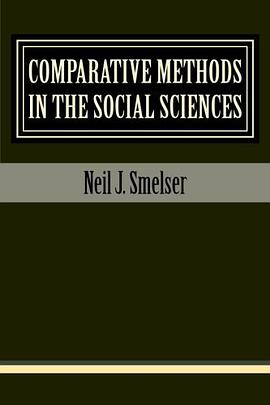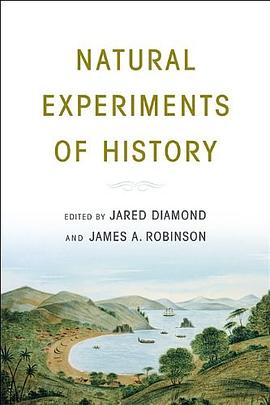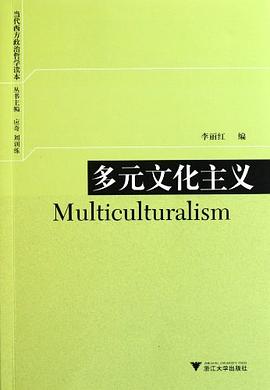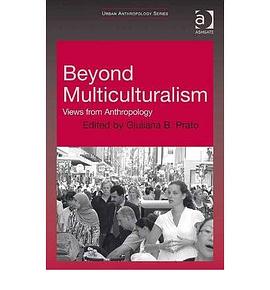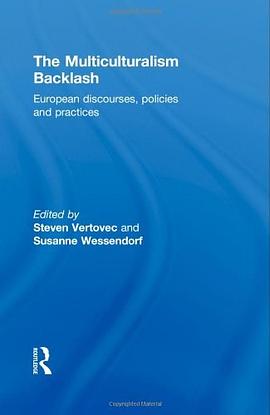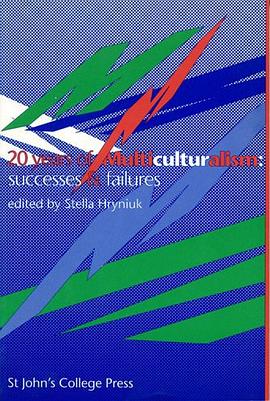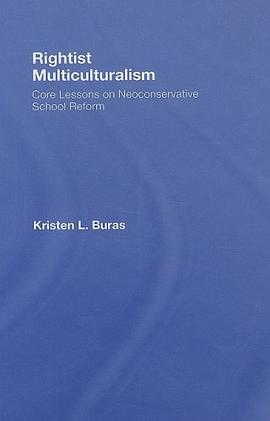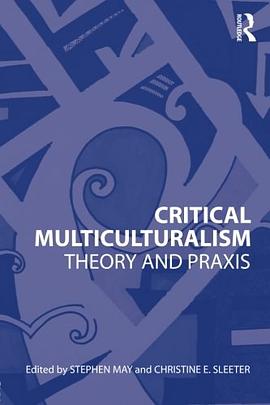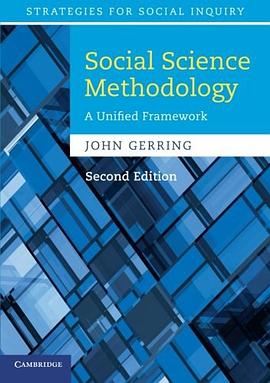
Social Science Methodology pdf epub mobi txt 電子書 下載2025
- 研究方法
- 方法論
- 社會科學
- 政治學
- methodology
- 自我啓發
- 科研
- 社會學
- 社會科學
- 研究方法
- 方法論
- 定量研究
- 定性研究
- 數據分析
- 研究設計
- 學術研究
- 統計學
- 社會科學研究

具體描述
John Gerring's exceptional textbook has been thoroughly revised in this second edition. It offers a one-volume introduction to social science methodology relevant to the disciplines of anthropology, economics, history, political science, psychology and sociology. This new edition has been extensively developed with the introduction of new material and a thorough treatment of essential elements such as conceptualization, measurement, causality and research design. It is written for students, long-time practitioners and methodologists and covers both qualitative and quantitative methods. It synthesizes the vast and diverse field of methodology in a way that is clear, concise and comprehensive. While offering a handy overview of the subject, the book is also an argument about how we should conceptualize methodological problems. Thinking about methodology through this lens provides a new framework for understanding work in the social sciences.
著者簡介
John Gerring is Professor of Political Science at Boston University, where he teaches courses on methodology and comparative politics. He has published several books including Social Science Methodology: A Criterial Framework (Cambridge, 2001), Case Study Research: Principles and Practices (Cambridge, 2007) and A Centripetal Theory of Democratic Governance (Cambridge, 2008). He served as a fellow of the School of Social Science at the Institute for Advanced Study, Princeton, New Jersey, as a member of The National Academy of Sciences' Committee on the Evaluation of USAID Programs to Support the Development of Democracy, as President of the American Political Science Association's Organized Section on Qualitative and Multi-Method Research and is the current recipient of a grant from the National Science Foundation to collect historical data related to colonialism and long-term development.
圖書目錄
The present volume xx
Acknowledgments xxiv
1 A unified framework 1
The problem of pluralism 3
A unified framework (Table 1.1) 11
Clarifications 14
Exclusions 16
Terminology 18
Examples 20
Democracy 21
Vouchers 21
Advice to the reader 22
Part I General 25
2 Beginnings 27
General goals (Table 2.1) 28
Discovery 28
Appraisal 30
Tradeoffs 32
Finding a research question 37
Study the tradition 38
Begin where you are 40
Get off your home turf 41
Play with ideas 43
Practice dis-belief 45
Observe empathically 47
Theorize wildly 48
Think ahead 50
Conduct exploratory analyses 52
Concluding thoughts on beginnings 54
3 Arguments 58
Criteria (Table 3.1) 60
Truth 60
Precision 61
Generality 61
Boundedness 64
Parsimony 66
Coherence 68
Commensurability 68
Relevance 69
4 Analyses 74
Definitions (Figure 4.1) 75
Research design versus data analysis 78
Criteria (Table 4.1) 80
Accuracy 81
Validity, precision, uncertainty (Figure 4.2) 82
Internal/external validity 84
Sampling 86
Representativeness 86
Size (N) 88
Level of analysis 90
Cumulation 91
Standardization 91
Replication 92
Transparency 94
Theoretical fit 95
Construct validity 95
Severity 96
Partition 100
Part II Description 105
5 Concepts 107
The quandary of description 110
Concepts 112
Criteria of conceptualization (Table 5.1) 116
Resonance 117
Domain 119
Consistency 121
Intension and extension: tradeoffs (Figure 5.1) 123
Fecundity 124
Differentiation 127
Causal utility 130
Strategies of conceptualization (Table 5.2) 131
Survey of plausible concepts 132
Classification of attributes (Table 5.3) 133
Definition: concept types 134
Minimal 135
Maximal 136
Cumulative (Table 5.4) 137
Discussion 138
6 Descriptive arguments 141
Strategies (Table 6.1) 142
Indicators 142
Syntheses 143
Typologies 144
Simple typology 145
Temporal typology 145
Matrix typology (Table 6.2) 146
Taxonomy (Table 6.3, Figure 6.1) 147
Configurational typology (Table 6.4) 147
Sequential typology 150
Associations 151
Trend 151
Network 151
Correlation 153
Conclusions 153
7 Measurements 155
Criteria 158
Overall goals: reliability/precision and validity (Figure 7.1) 160
Strategies (Table 7.1) 163
Levels of abstraction 164
Structure 165
Aggregation 167
Scales (Tables 7.2 and 7.3) 167
Objectives 172
Approaches: deductive and inductive 173
Ethnography 175
Surveys and experiments 177
Cross-referencing 179
Causal relations 181
Corruption: a detailed example 184
Ex post validity tests 191
Part III Causation 195
8 Causal arguments 197
Definitions 198
A simple causal graph (Figure 8.1) 200
Causal criteria (Table 8.1) 202
Clarity 204
Manipulability 207
Separation 212
Independence 213
Impact 214
Mechanism 215
9 Causal analyses 218
Causal effects 219
Varieties of treatment effects (Table 9.1) 220
Varieties of causal relationships (Table 9.2) 224
Departures from the treatment effect 225
An elaborated causal graph (Figure 9.1) 228
Criteria (Table 9.3) 231
Treatment 232
Exogeneity 232
Variation 233
Simplicity 234
Discrete-ness 235
Uniformity 236
Even distribution 237
Strength 238
Proximity 238
Scaleability 239
Outcome 240
Variation 240
Sample 242
Independence 242
Comparability (Figure 9.2, Table 9.4) 246
10 Causal strategies: X and Y 256
Summary (Table 10.1) 257
Randomized designs (Table 10.2) 258
Examples 262
Example 1: employment discrimination 262
Example 2: corruption control 263
Example 3: historic election campaigns 264
Example 4: gender and leadership 265
Example 5: democracy promotion 267
Obstacles 268
Internal validity 269
External validity 271
Conclusions 273
Nonrandomized designs 273
Regression-discontinuity (RD) designs (Figure 10.1) 275
Panel designs 279
Cross-sectional designs 283
Longitudinal designs (Table 10.3) 285
11 Causal strategies: beyond X and Y 291
Conditioning and confounding: a primer 292
Conditioning (Figure 11.1) 293
Confounders (Figure 11.2) 294
Strategies of causal inference that reach beyond X and Y 299
Conditioning on confounders (Figures 11.3 and 11.4) 299
Instrumental variables (Figure 11.5) 304
Mechanisms (Figure 11.6) 306
Alternate outcomes (Figure 11.7) 310
Causal heterogeneity (Figure 11.8) 315
Rival hypotheses (Figure 11.9) 316
Robustness tests 319
Causal reasoning 321
The assignment problem revisited 324
Beyond randomization 326
12 Varying approaches to causal inference 327
Causal-process observations 328
Causes of effects 333
Necessary/sufficient causal arguments (Table 12.1) 335
Discussion 337
Qualitative comparative analysis (QCA) (Tables 12.2, 12.3, 12.4,
Figure 12.1) 342
cs-QCA (Table 12.2) 343
fs-QCA (Tables 12.3 and 12.4, Figure 12.1) 346
Discussion 350
IV Conclusions 359
13 Unity and plurality 361
Qualitative versus quantitative 362
Culturalism versus rationalism 366
Models of causality 368
The covering-law model 368
The potential-outcomes model 369
Pluralism and monism 373
A unified account 376
14 Setting standards 379
Ceteris paribus 379
Trade-ups 381
Multimethod research 382
Setting standards 386
Threshold tests 387
Best-possible, all things considered 389
Postscript: Justifications 394
The practice of social science 398
Appendix: A few words on style 402
· · · · · · (收起)
讀後感
評分
評分
評分
評分
用戶評價
入手瞭兩年,然後一直放在書架上的著作。為瞭準備這個月的方法論考試(經驗研究)而看的教材,通過瞭纔有良民證。此書感覺的確相當枯燥,難以想象是準備給學部生的教程。對於上課的教師來說恐怕也是相當的考驗。而且若乾的材料有可能是有些過時瞭。然而,真是一部比較全麵的教材,寫的麵麵俱到。
评分我讀過比較好的社會科學研究方法教科書。Gerring提齣的Unified framework把關於causal inference的不同流派方法論比較好的整閤在一起。值得推薦給社科相關的博士生。
评分我讀過比較好的社會科學研究方法教科書。Gerring提齣的Unified framework把關於causal inference的不同流派方法論比較好的整閤在一起。值得推薦給社科相關的博士生。
评分入手瞭兩年,然後一直放在書架上的著作。為瞭準備這個月的方法論考試(經驗研究)而看的教材,通過瞭纔有良民證。此書感覺的確相當枯燥,難以想象是準備給學部生的教程。對於上課的教師來說恐怕也是相當的考驗。而且若乾的材料有可能是有些過時瞭。然而,真是一部比較全麵的教材,寫的麵麵俱到。
评分我讀過比較好的社會科學研究方法教科書。Gerring提齣的Unified framework把關於causal inference的不同流派方法論比較好的整閤在一起。值得推薦給社科相關的博士生。
相關圖書
本站所有內容均為互聯網搜索引擎提供的公開搜索信息,本站不存儲任何數據與內容,任何內容與數據均與本站無關,如有需要請聯繫相關搜索引擎包括但不限於百度,google,bing,sogou 等
© 2025 book.quotespace.org All Rights Reserved. 小美書屋 版权所有

